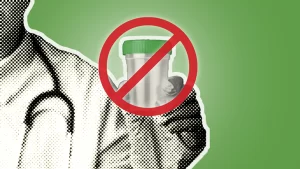|
Getting your Trinity Audio player ready...
|
Following months of public comment, the Michigan Civil Service Commission has voted unanimously to adopt new rules ending the practice of pre-employment marijuana screening for most state workers.
NORML’s Deputy Director Paul Armentano provided written testimony to the Commission in May in favor of the proposed regulatory changes, stating: “Policies that mandate would-be hires to undergo urine screens for past cannabis exposure are invasive, discriminatory, and ineffective. They neither identify workers who may be under the influence, nor do they contribute to a safe work environment.”

Under the new policy, most public employees will no longer be required to undergo pre-employment marijuana testing. (Exceptions to the new rules will remain for those in certain safety sensitive positions, like law enforcement personnel.) Those previously denied positions because of a failed marijuana test are also now eligible to immediately reapply for employment.
Michigan is among a growing number of jurisdictions to recently amend its drug testing regulations for public employees. Nevada and Washington have similarly adopted legislation limiting pre-employment cannabis testing for new hires, as have numerous municipalities, including Atlanta, Baltimore, Kansas City, Philadelphia, and St. Louis.
Several other jurisdictions, including California, Connecticut, the District of Columbia, Montana, New Jersey, New York, and Rhode Island have expanded these policies to limit cannabis testing for both new hires and existing employees.
Armentano said: “Suspicionless marijuana testing in the workplace, such as pre-employment drug screening, is not now, nor has it ever been, an evidence-based policy. Rather, this discriminatory practice is a holdover from the zeitgeist of the 1980s ‘war on drugs.’ But times have changed; public attitudes have changed, and in many jurisdictions, the marijuana laws have changed. It is time for workplace policies to adapt to this new reality and to cease punishing employees for activities they engage in during their off-hours that pose no workplace safety threat.”
The full text of NORML’s written testimony to the Commission is online. Additional information is available from the NORML Fact Sheet, ‘Marijuana Legalization and Impact on the Workplace.’





